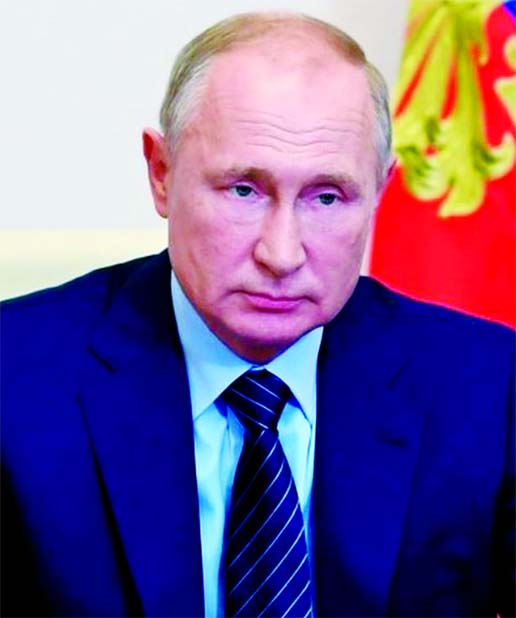
AFP, Moscow :
President Vladimir Putin said Thursday that the Russian budget was becoming less dependent on oil and gas, key exports for one of the world’s dominant petro-economies.
Putin told reporters during a marathon end-of-year press conference it was clearly positive that, “70 percent of the Russian budget is not formed by oil and gas revenues”.
“We are not completely there, but still we are starting to get off the so-called oil and gas needle,” he said.
The Russian leader acknowledged however that his country’s dependence on hydrocarbons was “still very high”. Russia is the world’s second largest oil exporter after Saudi Arabia and its budget is heavily reliant on hydrocarbons.
During peak oil prices in the 2000s, Moscow drew almost half of its revenue to the federal budget from oil.The share of hydrocarbon revenues was 40 percent of the 2019 budget, according to state news agency TASS.
Kremlin spokesman Dmitry Peskov earlier this year said the country’s economy was weening itself off oil and gas but noted the trend was not continuing as “rapidly as we would like”.
Global oil prices stood at $70 per barrel at the start of this year, but fell dramatically over the coronavirus pandemic and the Russia-Saudi Arabia price war in the spring.
The current price of oil is around $50 a barrel.
President Vladimir Putin said Thursday that the Russian budget was becoming less dependent on oil and gas, key exports for one of the world’s dominant petro-economies.
Putin told reporters during a marathon end-of-year press conference it was clearly positive that, “70 percent of the Russian budget is not formed by oil and gas revenues”.
“We are not completely there, but still we are starting to get off the so-called oil and gas needle,” he said.
The Russian leader acknowledged however that his country’s dependence on hydrocarbons was “still very high”. Russia is the world’s second largest oil exporter after Saudi Arabia and its budget is heavily reliant on hydrocarbons.
During peak oil prices in the 2000s, Moscow drew almost half of its revenue to the federal budget from oil.The share of hydrocarbon revenues was 40 percent of the 2019 budget, according to state news agency TASS.
Kremlin spokesman Dmitry Peskov earlier this year said the country’s economy was weening itself off oil and gas but noted the trend was not continuing as “rapidly as we would like”.
Global oil prices stood at $70 per barrel at the start of this year, but fell dramatically over the coronavirus pandemic and the Russia-Saudi Arabia price war in the spring.
The current price of oil is around $50 a barrel.

